A healthy investment
Five ways Kenko Investment for Health is changing the region
Faced with a rapidly aging population and a shrinking workforce, Japan is exploring ways to extend people’s working lives and improve the overall health of the nation to fuel economic growth and keep social security costs in check. Kenko Investment for Health (KIH) is an initiative established and coordinated by the Japanese Ministry of Economy, Trade and Industry (METI) with the aim of encouraging companies to invest in the health of their employees.
On February 28, METI organized a forum in Bangkok to provide an international audience with perspectives on how Japan’s example of investing into the health of working people might prove instructive for other Asian economies as well as graying countries around the world. Here we distill the potential ways KIH can change the region revealed during the event.
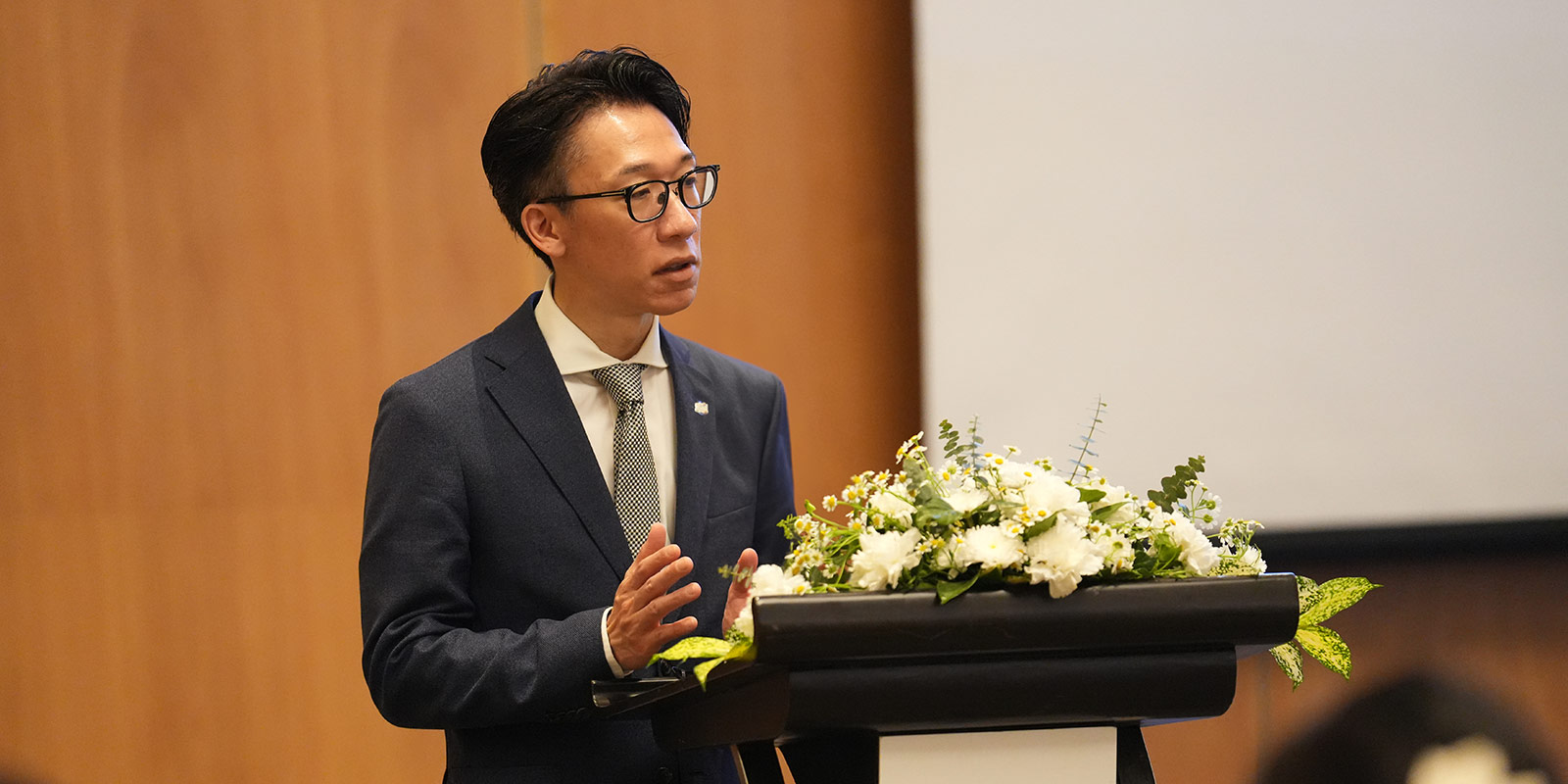 METI’s Taisuke Hashimoto
METI’s Taisuke Hashimoto
1. Boosting productivity and happiness
The forum’s opening presentation was given by METI’s Taisuke Hashimoto, director of the ministry’s Commerce and Service Industries Policy Group. He discussed how since 2016, METI and the Japan Health Council, a government-supported body established to help businesses with health-related measures, have been recognizing companies that engage proactively with KIH as “certified health and productivity management organizations.” To be acknowledged, a company’s investment in the health of its employees must be backed up by a commitment from top management and the right organizational structure, and result in tangible measures such as practices to encourage healthy eating habits, programs to support the mental health of employees, and initiatives aimed at furthering women’s health. The company is also required to have a framework for evaluating and improving its measures over time.
As of 2023, 2,676 entities have been KIH-certified in the large companies (10,000+ employees) category and 14,012 in the small- and medium-sized businesses category. Around 8.3 million people, or 15% of Japan’s workforce, currently work in a KIH-certified organization and, according to METI data, 60 percent of job-seekers in Japan take a company’s KIH efforts into consideration when applying for a job.
“Certified KIH organizations have a significantly lower turnover rate than the average workplace,” said Hashimoto, “and display lower levels of employee stress, leading to higher levels of satisfaction at work.” Having had particular success with larger corporations, the ministry is setting its sights on making KIH a core concern in SMEs, which employ around 70 percent of Japan’s workforce. “We still have work to do to raise awareness throughout the economy,” Hashimoto said.
2. Helping to fight lifestyle diseases
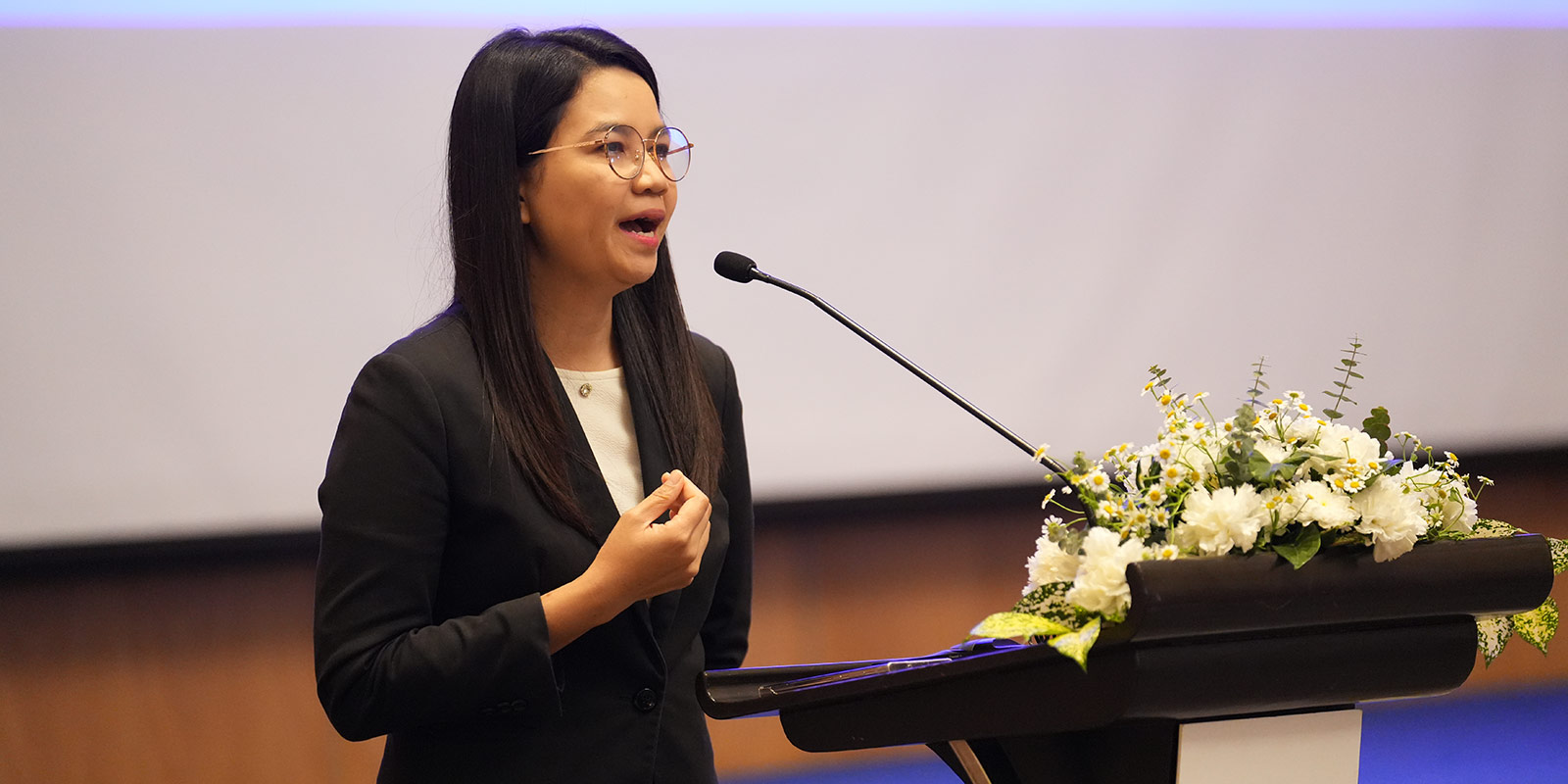 Sunan Panongwang from Canon Hi-Tech (Thailand) Ltd
Sunan Panongwang from Canon Hi-Tech (Thailand) Ltd
Having companies provide a work environment in which their employees can concentrate on productive tasks while staying healthy is the core goal of the KIH vision. Another speaker at the forum, Sunan Panongwang, revealed how these goals had been put into action. Panongwan is Occupational Health and Safety Manager at Canon Hi-Tech (Thailand) Ltd., a subsidiary of the Japanese multinational famed for its cameras and printers. She said the firm has made fighting non-communicable diseases such as heart disease, diabetes, chronic respiratory disease, and cancer a company-wide concern. “We place great emphasis on educating our employees [about these diseases], monitor risk factors, and take steps to prevent [unhealthy lifestyles],” she said.
Canon Hi-Tech Thailand’s measures to promote the health and welfare of the nearly 8,000 employees at its two factories range from providing gym facilities to creating a network of medical assistance that includes regular check-ups, consultation, and vaccinations. The company also has programs to help its people with everything from reducing body fat to improving their skills in the kitchen. “[These programs] aim to raise awareness and help [our people] lead healthy lives,” said Panongwang. “We also collaborate with government agencies and medical professionals to provide knowledge on proper nutrition.”
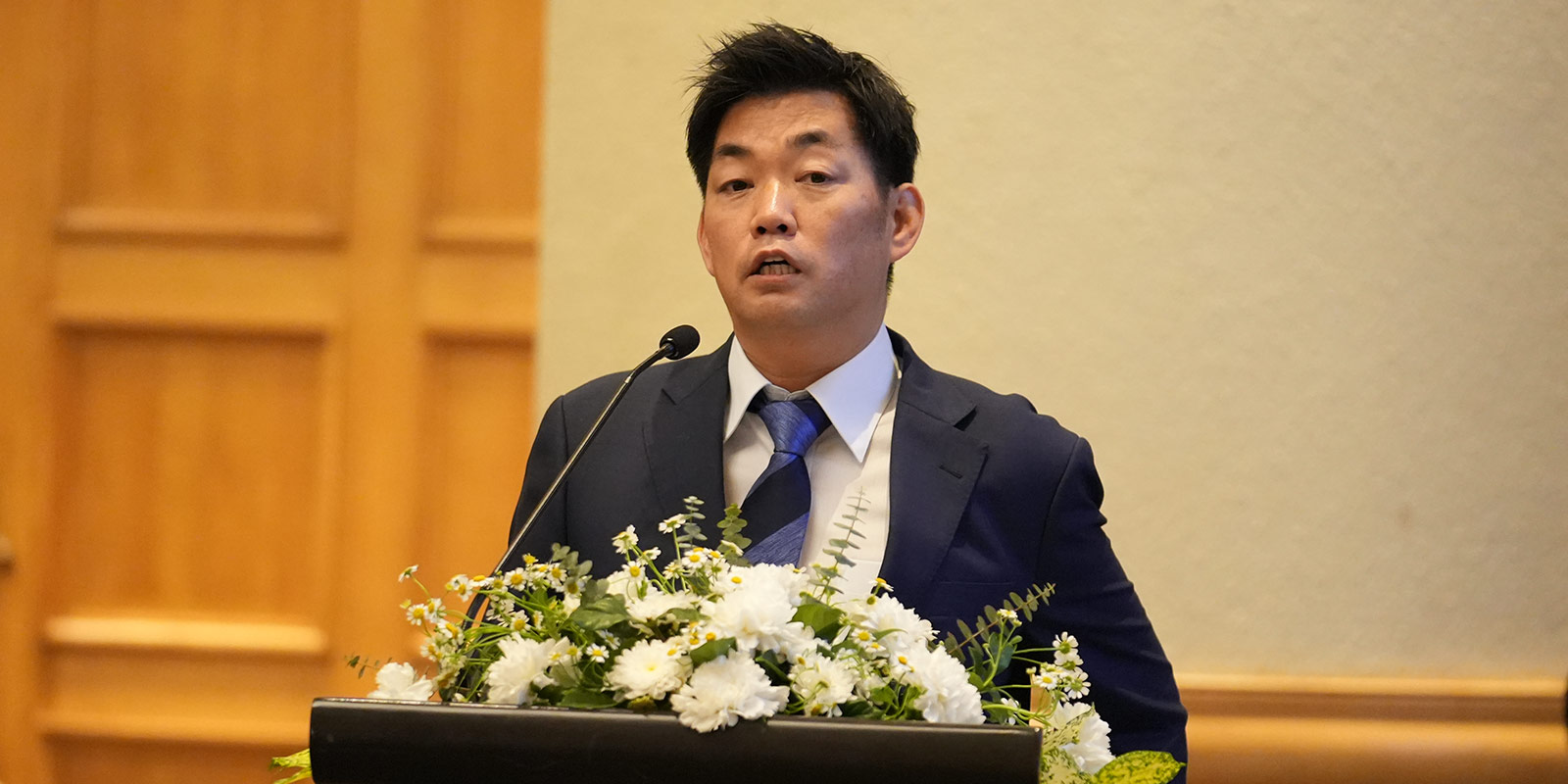 PHT’s Tetsuya Nitta
PHT’s Tetsuya Nitta
3. Encouraging healthy choices
In Japan, where companies are legally required to have their employees undergo an annual medical check-up, investments related to the monitoring and maintenance of employee health are a core component of most firms’ KIH initiatives. One beneficiary of such efforts is Personal Health Tech Co. Ltd. (PHT), a health technology company that promotes healthy lifestyles and efforts to reduce medical expenses through the collection and analysis of personal health data. According to CEO Tetsuya Nitta, more than 300 companies in Japan have implemented PHT’s employee health management app, Kensapo, which is now being marketed in dozens of countries across Asia and other regions.
“Kensapo is used to monitor user health and the use of health data to encourage healthy lifestyles,” said Nitta at the forum. As Japanese companies are exploring ways to build on employees’ annual check-up results to develop data-based, comprehensive measures aimed at improving their people’s wellbeing, Kensapo and PHT’s other services “can assist with the digitalization of health records and overall management of the medical exam process,” added Nitta. PHT can be contracted to operate the entire check-up process for a company, from reservations to the provision and analysis of digitized results for use by HR and other relevant departments. Employees can use the Kensapo app to view their results along with suggestions on lifestyle changes, earn rewards for healthy choices, and view health-related video content.
For companies, the kind of integrated employee health management system provided by PHT can prove useful when seeking to understand and improve the overall health of the workforce—something that is increasingly becoming a concern for investors, too. “Requirements relating to the disclosure of human capital information are being adopted by regulators around the world,” concluded Nitta. “To help companies comply with these rules and satisfy investors, our services include the drafting of human capital reports [based on Kensapo health data].”
4. Changing the way we eat
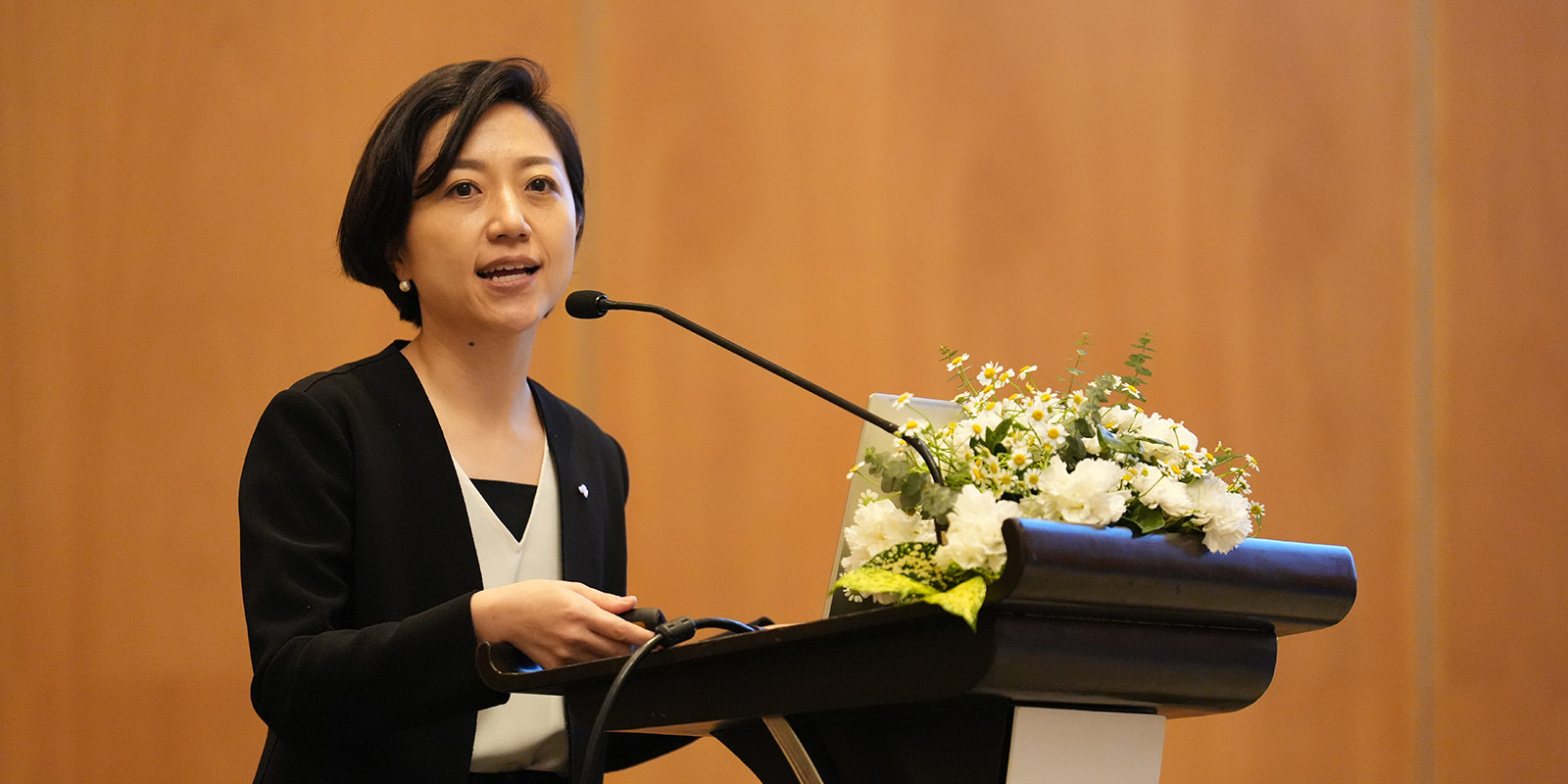 Tomoe Izumi from Ajinomoto
Tomoe Izumi from Ajinomoto
Ajinomoto, the Japanese food and healthcare firm best known for its eponymous umami seasoning, is embracing KIH with initiatives aimed at having its employees “eat well, live well” in a “joyful” workplace.
“We have invested in having our office cafeterias provide healthy food choices, low in sodium, cholesterol, and sugar,” said Tomoe Izumi from the public relations department of Ajinomoto’s Thai subsidiary at the forum. “We also have healthy snacks readily available, and promote the use of a wellbeing app for employees.” The app allows users to set health-related goals and record meals and workouts. It also provides advice on healthy choices in food and exercise, which are encouraged with a rewards system that lets employees earn coins that can be exchanged for gifts.
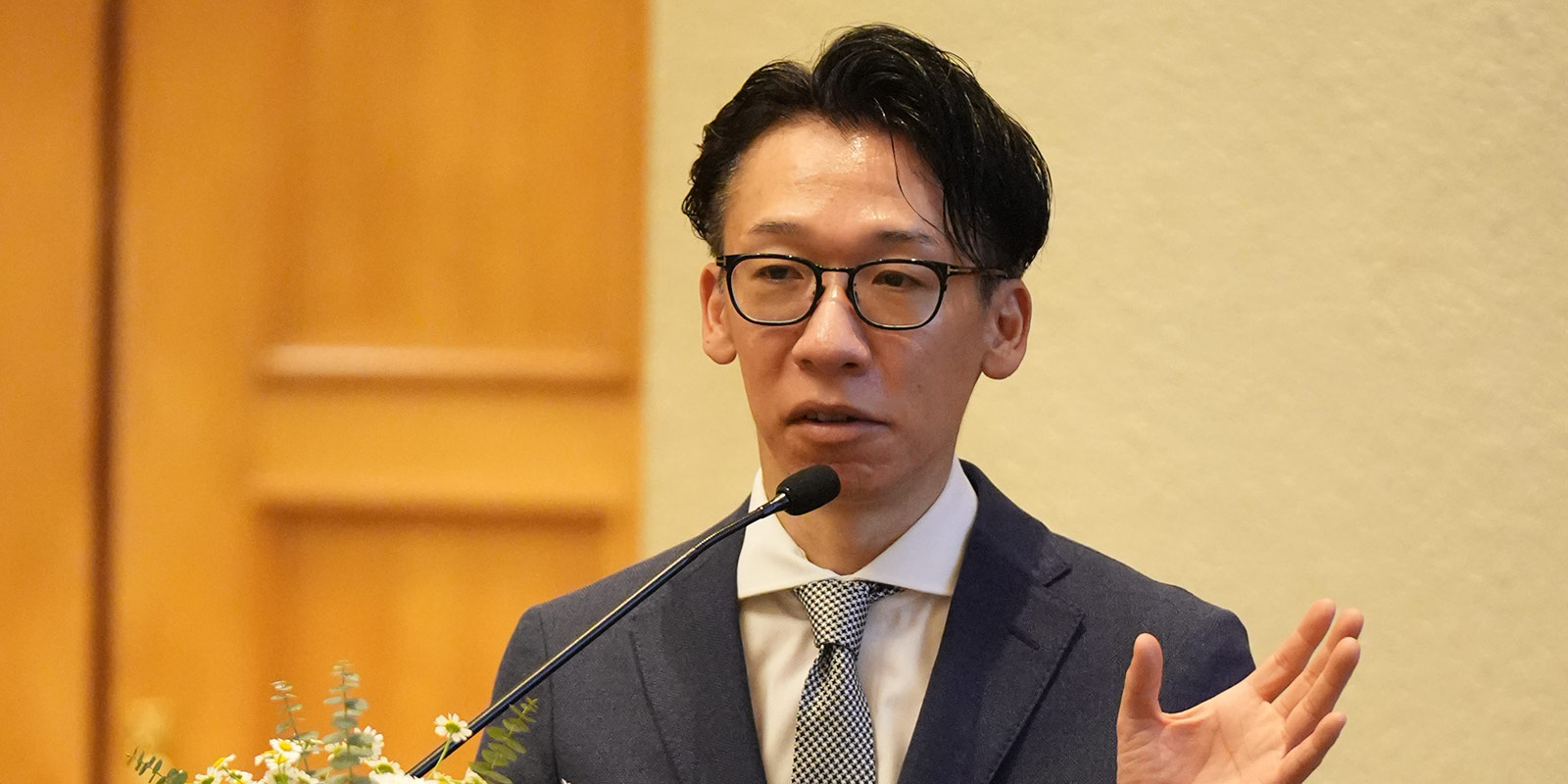 METI’s Taisuke Hashimoto
METI’s Taisuke Hashimoto
5. Changing the wider society
While the KIH initiative is workplace-centered, METI expects the widespread adoption of health-forward thinking in the business world to have society-wide effects. “[In the long run] KIH can help improve the health literacy of society as a whole,” concluded Taisuke Hashimoto, “by extending healthy lifespans and improving quality of life in old age.”